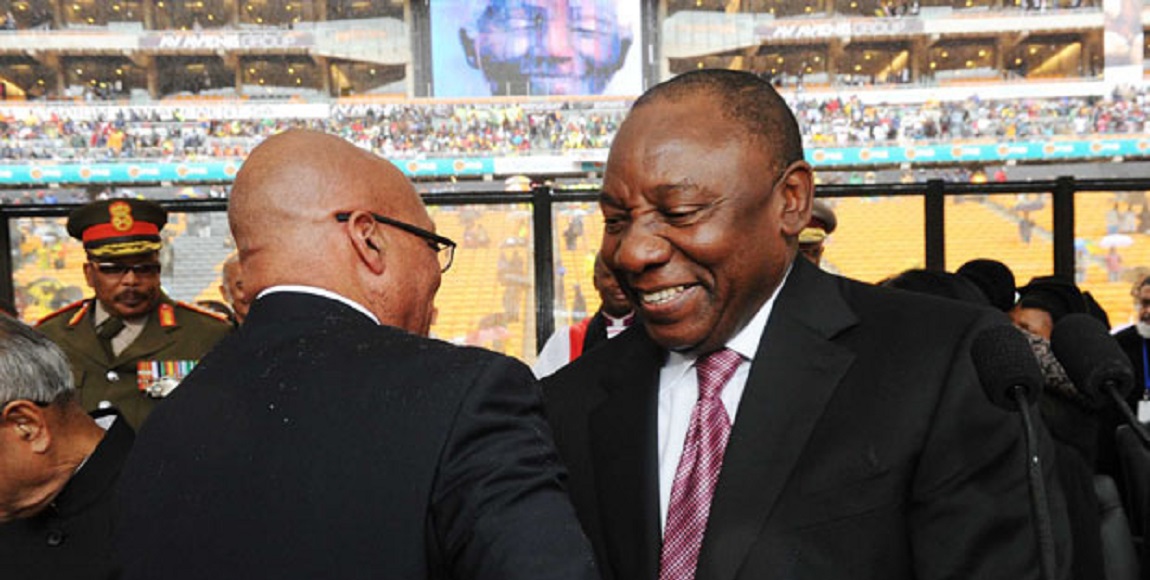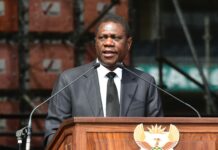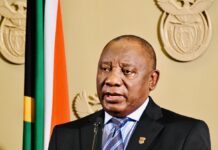The emergence of the campaign and associated political rhetoric under the banner of “Radical Economic Transformation†(RET) devolved from the Zuma administration. Over the course of 2017, RET generated intense media debate and inquiry. It linked a renewed zeal for aggressive affirmative action based ownership expansion plans in the private sector, most clearly defined in the championed Mining Charter, with movement towards “land expropriation without compensations†as policy, and a broad alignment with the notion of free education as called for by the heterogeneous FeesMustFall campaign, writes BRIAN KAMANZI.Â
The binding rationale called for an alignment of a faction of the African nationalist forces under the Zuma faction of the ANC, as a bloc against white monopoly capital. This positioning essentially dismisses the public outcry fuelled by mainstream media, against state corruption, pivoting around President Zuma and his relationship with the parasitic network of corporations owned by the infamous Gupta family, as a racist preoccupation which ignores larger scale historical corruption particularly emphasizing the Rupert and Oppenheimer empires and their relationship to big business, imperialism and the state.
Critics of the RET programme have been over-reliant on fighting a positional war over the existence of “white monopoly capital†(WMC) as a subtext for rehashing the spread of tendencies among the left on the “race vs class†debate. Within the ANC this tension was possibly best demonstrated by a polemic position paper by Joel Netshitenzhe titled “Of Emptied Sacks and White Monopoly Capital†in the build up to the party’s 54th national congress. Here, Netshitenzhe called for increased open debate on the matter, welcoming evidence and deriding sophistry. He went on to locate the use of WMC historically in early 1960s within the South African Communist Party (SACP) dispelling the notion of the newness of the concept, however asserting that rather than forming a key aspect of the parties conception of a revolutionary pathway, it was used as a shorthand for the exclusion of Black peoples from certain forms of ownership. The SACP itself has adopted a two stage theory of revolution inspired by Stalin’s programme of national socialism, industrialisation and internationalism and the party continues to enjoy heavy representation in government as a result of its role in the tripartite alliance alongside the ANC and the Congress of South African Trade Unions (Cosatu).
In response to the growing pressure mounting against Zuma’s faction over the Gupta links leadership in both Cosatu and the SACP, many of whom who were responsible for his ascent to power, allliance leaders come out in public statements admonishing state corruption and the weakening of the ruling alliance. Just before the 54th national conference, the now outspoken SACP chairperson Blade Nzimande found himself deposed as a minister of higher education and left out of the ANC’s latest national executive committee (NEC). On the labour front, the expulsion of Zwelinzima Vavi and the nation’s largest union Numsa from Cosatu in 2014 have subsequently led to the formation of the South African Federation of Trade Unions (Saftu) and calls and steps made towards the formation of a worker’s party to contest state power through elections.
Using this cursory glance of the massive shifts in post-apartheid South Africa’s ruling movement, the tripartite alliance, the proposition of radical economic transformation, I argue, can be seen as an attempt to create a decisive break with the struggle for socialism in favour of a mixed economy under a black “controlled†republic with the aid of an alleged counter hegemonic capital and support of the BRICS political bloc and its burgeoning financial institutions.
Cyril Ramaphosa’s ANC election campaign bid offered a “New Deal†promising tough action on state corruption, “good governance†and an entrepreneurial focus in contrast to programme of RET supported by his primary opponent Nkososana Dlamini-Zuma. Shortly after his victory, which itself was born out of a political compromise leaving a number of his key party executives under the Zuma “campâ€, Ramaphosa embraced RET in a press conference stating “’Radical economic transformation is, in essence, about building a more equal society through sustained inclusive growth†presumably in an attempt to demonstrated unity within the party. What the easy adoption of this discourse represents for both factions is a the resounding notion that ‘there is no alternative’ outside of the capitalist system neither today, nor tomorrow let alone on the horizon,” he said.
A concept referred to as “authoritarian populism†popularised by radical scholar Stuart Hall in an essay titled “The Great Moving Right Show†in 1979 came at the height of Thatcherism in the United Kingdom in an attempt to explain the rollback of social welfare gains in the post-World War II era. Hall’s influential contribution described the Thatcherite regime as one that was able to ascend to power by manipulating the crises emerging from the contradictions within the social democratic system to establish a popular mandate for wide scale privatisation and general rightward policy shift within government understood today as neoliberalism. This process involved too, a deep restructuring of educational institutions to which Hall remarked:
“In the face of the massive failures of social democratic policies on schooling to turn the tide of educational disadvantage, the positive aspirations of working people for the education of their children can be redirected towards the support for a traditional education, programmes of discipline and ‘relevance to industrial experience'”.
Clear parallels here can be found in President Zuma’s surprise “Free Educationâ€Â policy announcement, before the now much discussed ANC national conference, which sought to expand funding to students entering higher eduction through grants, expanded national loan scheme coverage and significant funding increases for Technical and Vocational Education and Training (TVET) colleges. The TVET sector itself has been described and framed by national policy was geared towards the needs of industry, suited for practical skills for people looking to enter into the skilled job market and it represents the furthest higher education access project in the post-apartheid era. Several weeks later Zuma went further to publicly declare 2018 the year of the “skills revolution†under radical socio-economic transformation. This chaotic announcement which left the sources of funding out of its ambit and vice chancellors across the country kept in the dark. It also gave the FeesMustFall movement, which by now was weakened by repression, loss of public support and well known factionalism, an opportunity to claim a significant partial victory as a trade for aligning, defending and in some cases justifying the programme of radical socio-economic transformation. What has remained markedly absent thus far from the student movement post-announcement has been an analysis of restructuring of the state under the numerous unfolding crisis through the unfettered consolidation and proliferation of public-private partnerships from everything from water metering to basic education.
The proposed “Skills Revolution†which hinges heavily on the TVET sector to produce industry suited jobs thus far offers no discernable critique of capitalism. Similarly empty promises from the Ramaphosa campaign for the creation of jobs in no way engages with the historical role in which (mass) unemployment and the creation of reserve labour has operated to lower the costs of labour in production and increase job precarity reducing the possibilities of stable employment and weakening the labour movement as a whole by making it difficult to organise. So one would wonder given the existing and looming precarity and instability, who would be the motive force of the coming radical economic transformation? Your guess is as good as mine.
The challenge to transform this opportunity into something that both accepts progressive aspects of the announcement that will directly impact student lives today with the long term serious questions of what role students can constructively play in forging revolution will undoubtedly be bitterly fought for years to come, we are as it were caught in a spider’s web of authoritarian populism.
Therefore at this time the question is not whether or not white monopoly capital exists, but instead how should we respond to the demands and movements that animate the debate that contest for hegemony in its name.
The deployment of “radical economic transformation†by the ruling party should be considered seriously as a form of authoritarian populism exploiting a pessimism devolving from a slowing economy, the reality of job scarcity and a weakening state whose capacity to deliver basic service is being attack with veracity. Pessimism and righteous anger are not immune to manipulation for all of us, as students of society, the pursuit of alternatives is something we should collectively pursue and support from the grassroots. The ebb and flow of top party officials and big capital need not determine the horizon of what is possible. There are alternatives but they are not hidden in mystical words of politicians or between the lines of crafted essayist but in the milieu of everyday resistance where texture of the past and present meet and gravity of the hope for a different future resides.
Brian Kamanzi is a Cape Town-based writer and electrical engineering Masters student at the University of Cape Town. He describes himself as committed to the social upliftment of his fellow people. He is a Pan-Africanist eager to make contributions to the movement and form cross-cultural connections with others in the struggle. Follow his writing online at www.briankamanzi.wordpress.com









